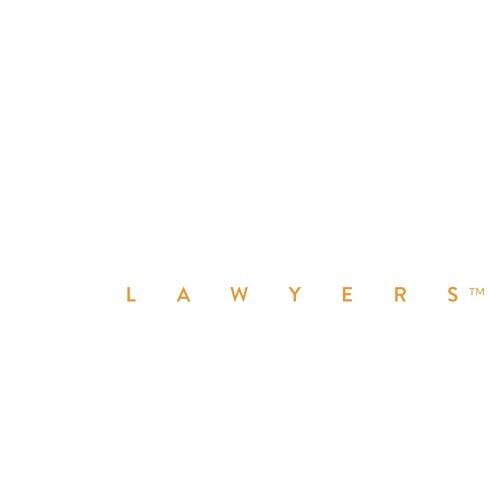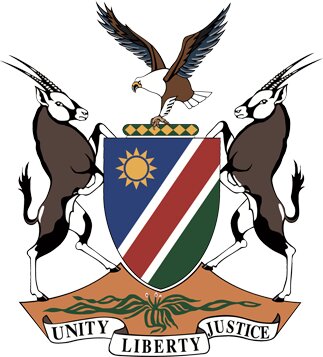Best Constitutional Law Lawyers in Windhoek
Share your needs with us, get contacted by law firms.
Free. Takes 2 min.
List of the best lawyers in Windhoek, Namibia
About Constitutional Law in Windhoek, Namibia
Constitutional law in Namibia governs the structure and function of government institutions and establishes the legal framework for protecting individual rights within the country. As the supreme law, the Namibian Constitution, adopted on March 21, 1990, sets out the country's fundamental principles, rights, and freedoms. Windhoek, as the capital city, serves as the hub for legal and governmental activities related to constitutional matters. The Namibian Constitution is known for its progressive approach to democracy, human rights, and separation of powers.
Why You May Need a Lawyer
There are several reasons why individuals may seek legal help in constitutional law:
- Challenging or defending governmental actions which might be unconstitutional.
- Issues related to fundamental rights violations, such as freedom of speech or protection against discrimination.
- Interpretation and application of constitutional provisions concerning political rights or electoral processes.
- Advising on constitutional amendments or reforms.
- Exploring remedies for breaches of constitutional law, including judicial review or constitutional petitions.
Local Laws Overview
In Windhoek, Namibia, key aspects of local laws relevant to constitutional law include:
- The Supremacy of the Constitution: The Namibian Constitution is the highest law, and any law or government action contrary to it is deemed invalid.
- Bill of Rights: The Constitution enshrines a comprehensive Bill of Rights, protecting civil, political, social, and economic rights.
- Judicial Independence: The Constitution guarantees the independence of the judiciary, which plays a crucial role in upholding constitutional law.
- Separation of Powers: Clearly demarcates the powers and roles of the executive, legislative, and judicial branches of government.
- Constitutional Amendments: Provides procedures and requirements for amending the Constitution, ensuring stability and considered reforms.
Frequently Asked Questions
What is the role of the Namibian Constitution?
The Namibian Constitution establishes the basic legal framework for the country's governance, protection of individual rights, and responsibilities of the state. It serves as the supreme law guiding the legal and political landscape.
Who can challenge a constitutional issue in Namibia?
Any individual or legal entity affected by a constitutional matter can challenge it in court. Additionally, certain public entities or ombudsmen have the mandate to raise issues of public concern.
How are constitutional disputes resolved?
Constitutional disputes in Namibia are resolved by the judiciary, particularly the High Court and the Supreme Court, which have the authority to interpret and enforce constitutional provisions.
Can constitutional amendments be challenged?
Yes, constitutional amendments can be challenged if they do not follow the prescribed procedures or infringe on immutable rights or principles outlined in the Constitution.
What are some fundamental rights protected by the Namibian Constitution?
The Constitution protects a range of rights including freedom of expression, right to equality, right to life, and protection from discrimination.
How does one initiate constitutional litigation?
Constitutional litigation usually begins by filing a lawsuit in the High Court, detailing the alleged constitutional violation and seeking appropriate relief or remedies.
Is legal aid available for constitutional law matters?
Yes, legal aid may be available for individuals who cannot afford legal representation, particularly in cases involving significant constitutional issues.
What role does the Ombudsman play in constitutional law?
The Ombudsman in Namibia plays a key role in investigating complaints of human rights violations and maladministration, making them important in constitutional advocacy.
How often is the Constitution amended?
The Namibian Constitution is amended infrequently, with amendments generally pursued only with broad consensus or necessity.
Can international law influence constitutional law in Namibia?
Yes, international law can influence constitutional interpretation, especially where Namibia is a signatory to international treaties that align with constitutional guarantees.
Additional Resources
If you need more information or assistance regarding constitutional law, the following resources might be helpful:
- Ministry of Justice: Provides access to legal resources, publications, and contacts for legal assistance.
- Office of the Ombudsman: Addresses human rights violations and can guide how to approach constitutional issues.
- Legal Assistance Centre: Offers support and advocacy for various legal and human rights issues, including constitutional law.
- Namibian Law Society: Can help locate practicing constitutional lawyers in Windhoek.
Next Steps
If you require legal assistance in constitutional law, consider the following steps:
- Identify the specific legal issue or question related to constitutional law you need resolved.
- Contact a lawyer in Windhoek specializing in constitutional law for a consultation.
- Gather all relevant documents and details pertaining to your case for discussion with your legal advisor.
- Explore possible legal aid or supportive advocacy services if financial resources are a concern.
- Keep abreast of any timelines or processes outlined by your lawyer to effectively address your constitutional law concerns.
Lawzana helps you find the best lawyers and law firms in Windhoek through a curated and pre-screened list of qualified legal professionals. Our platform offers rankings and detailed profiles of attorneys and law firms, allowing you to compare based on practice areas, including Constitutional Law, experience, and client feedback.
Each profile includes a description of the firm's areas of practice, client reviews, team members and partners, year of establishment, spoken languages, office locations, contact information, social media presence, and any published articles or resources. Most firms on our platform speak English and are experienced in both local and international legal matters.
Get a quote from top-rated law firms in Windhoek, Namibia — quickly, securely, and without unnecessary hassle.
Disclaimer:
The information provided on this page is for general informational purposes only and does not constitute legal advice. While we strive to ensure the accuracy and relevance of the content, legal information may change over time, and interpretations of the law can vary. You should always consult with a qualified legal professional for advice specific to your situation.
We disclaim all liability for actions taken or not taken based on the content of this page. If you believe any information is incorrect or outdated, please contact us, and we will review and update it where appropriate.















